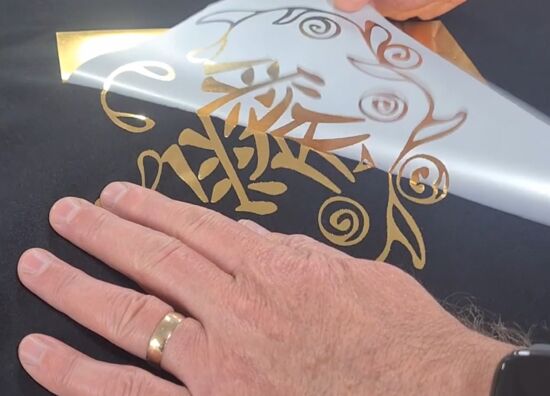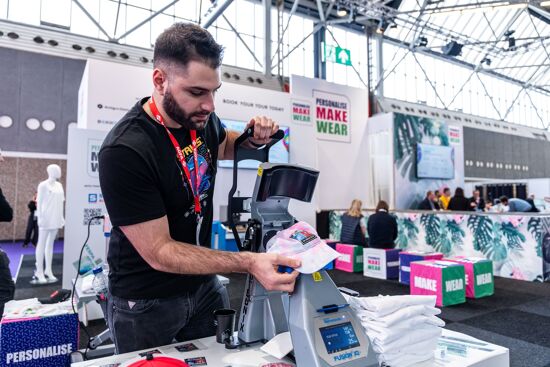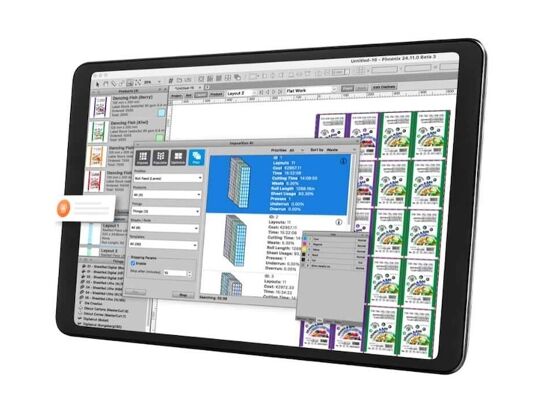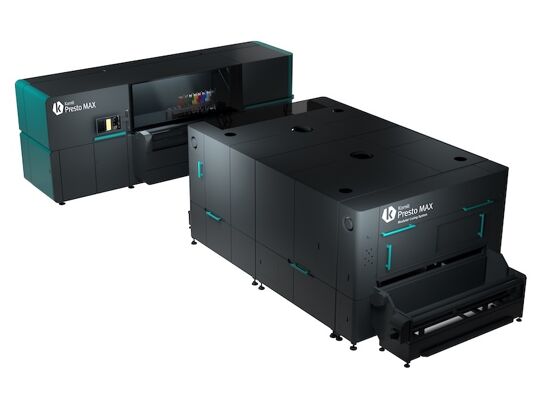DIS Group welcomes new work after Covid-19 lockdown
.png?width=750)
Diversified print service provider DIS Group has revealed that it has been able to expand into a number of new markets following the novel coronavirus (Covid-19) lockdown in the UK.
Based in Wolverhampton near Birmingham in the West Midlands, DIS offers a wide selection of print and sign-making services, ranging from large-format printed applications to vehicle graphics and exhibition work.
Like many other companies in print markets around the world, DIS was hit hard by the Covid-19 crisis. Some large orders were lost overnight, while others were delayed until later in the year, and some cancelled altogether.
To help mitigate the impact of the pandemic, DIS furloughed the majority of staff, allowing the company to take stock of where it was as a business and plan for the future, which in turn allowed it to identify some valuable new markets.
DIS sales director Dave Purcell told FESPA.com that during this period of huge uncertainty for the wider industry, the company was keen to play its part in helping the community.
This included getting involved with ScrubHub, a network of volunteers making scrubs for NHS staff working across the UK, as well as producing 500 activity books free-of-charge for Wolves Foundation, the community organisation of local Premier League football club Wolverhampton Wanderers.
“With ScrubHub, we started printing patterns to be sent out to people all over the country to make scrubs for the NHS, all free of charge,” Purcell said. “We then volunteered our time and machines and started making protective visors for distribution to all Midlands hospitals and care homes.
“We felt compelled to do our bit in these terrible times.”
In terms of how DIS is fairing now restrictions in the UK have been eased, Purcell said that the business is nearly back to full strength, but with some operational changes due to Covid-19.
“The order book has now come back to normal levels and while the type of work is still Covid-19 related, we are seeing this slowly change and go back to our normal print work,” Purcell said.
In terms of the rising workload, Purcell said demand for services has increased in areas where DIS had not traditionally been as active. This included working closely with the NHS Birmingham Community Healthcare NHS Foundation Trust, whereby DIS installed screens at its hospitals, as well as floor vinyls and safety wayfinding across the Trust’s 300 locations.
With this in mind, Purcell speaks positively about the remainder of 2020, saying that the business is in a good position to move forward.
“I am very optimistic about the rest of the year; I feel we have to show strong positive leadership, and believe we will be up to full speed and beyond in no time,” Purcell said.
Interested in joining our community?
Enquire today about joining your local FESPA Association or FESPA Direct
Recent news

Special Effects in DTF Will Make Your “Prints” More Memorable
The DTF market is expanding with new vendors and innovations like multi-head printers enabling diverse ink options (spot, neon). Decorative films offer streamlined special effects. Keypoint Intelligence tested metallic and glitter films, noting varied ease of use and wash durability. New technology using adhesive and foil directly promises further creative advancements in DTF.

SmartHub – Expectations, opportunities and why you should attend!
The SmartHub at Personalisation Experience 2025 in Berlin will showcase personalisation and smart production opportunities across industries like textiles. Featuring a Smart Factory Trail with brands like Inkcups and Trotec, and a conference with experts discussing AI, mass customisation, and profit strategies, it offers insights into reducing waste and boosting efficiency through digital methods. Panel sessions will explore growth, automation in textiles, and smart manufacturing.

How is AI revolutionising Large Format Print?
Nessan Clearly discusses how AI in print relies on data pattern matching, already enhancing software for large format providers. He predicts that this will result in increased AI integration in workflow planning, job queue management, colour correction, image upscaling, and predictive maintenance via sensors and vision systems, ultimately streamlining operations and offering greater flexibility.

One Ink for All? Exploring Pigment in Textile Printing
Digital textile printing faces complexity due to diverse substrates requiring specific inks. The industry seeks a universal ink, with pigment ink showing potential. While traditionally for natural fibres, advancements aim to broaden its application, simplify processes by reducing pre/post-treatment, and improve sustainability, though challenges like hand feel on garments remain.